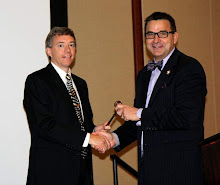For those who ask "What's in it for me"
IRS Confirms Eyeglasses and Contact Lenses Exempt from New Medical Device Tax
Affirming yet another AOA health reform victory, the federal government this month released final regulations confirming that eyeglasses and contact lenses will be exempt from the new 2.3 percent excise tax on most medical devices.
Set to take effect Jan. 1, 2013, the new tax will be imposed on most types of medical devices and was originally included in the 2010 health care overhaul as a means to help raise nearly $30 billion for the law’s expansion of health insurance coverage.
As supported by the AOA, section 4191(b)(2) of the Internal Revenue Code, as enacted in the Affordable Care Act, specifically provides that eyeglasses and contact lenses are not taxable medical devices under this provision.
As officials searched for mechanisms to help raise revenue for the bill and eventually settled on the medical device tax proposal, the AOA successfully convinced lawmakers to include a specific exemption for eyeglasses and contact lenses.
In promulgating the final rule, the Internal Revenue Service (IRS) explained that devices generally purchased by the general public at retail for individual use, such as eyeglasses and contact lenses, would be exempt from the tax.
The IRS included a partial list of factors to consider, in their totality, whether other devices qualify for the exemption. The IRS also outlined a safe harbor for categories of devices that automatically fall within the retail exemption, including prosthetics that do not require implantation or insertion, and certain over-the-counter items.
Importantly, the new excise tax is to be paid by manufacturers, importers, and producers of taxable medical devices, not the purchaser of such devices. Despite this arrangement, the AOA remains concerned that the price of ophthalmic and other equipment used in optometry practice settings may rise as a result.
Currently, there are bipartisan efforts underway to repeal or delay the new excise tax, particularly by lawmakers from states with a strong device manufacturer presence. Republicans and some Democrats in the U.S. House and Senate have launched multiple attempts to either repeal or delay the new tax.
While heartened that the federal government has affirmed one of optometry’s health reform victories, the AOA will continue to monitor efforts in Congress to address this issue and will continue to actively seek input from AOA members on the impact that the new tax might have on optometry practices.
